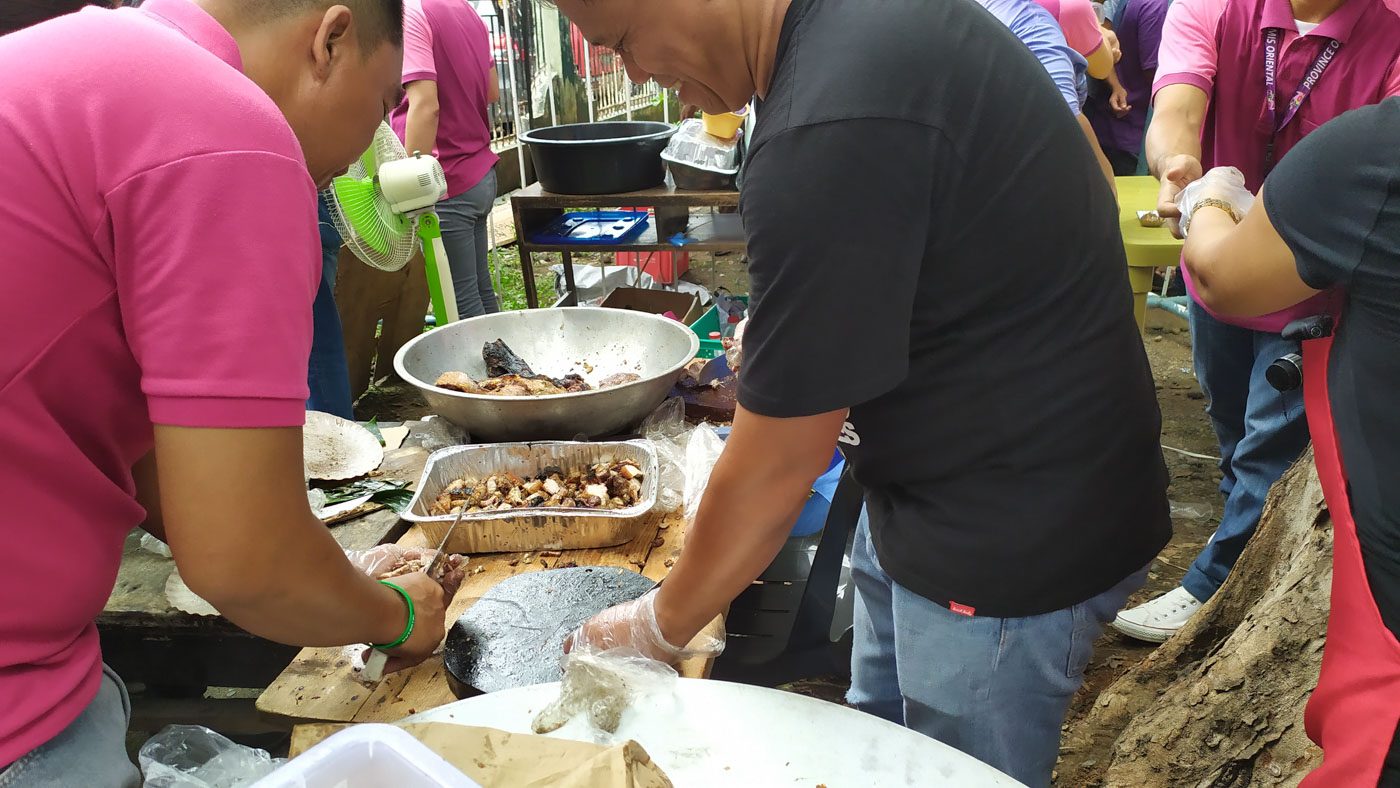SUMMARY
This is AI generated summarization, which may have errors. For context, always refer to the full article.

CAGAYAN DE ORO CITY – Misamis Oriental on Wednesday, September 11, has prohibited the entry of pork and pork products into the province, joining 3 others which have imposed a similar ban to prevent their local hogs from being contaminated.
The provinces of Cebu, Bohol, and Negros Occidental have earlier imposed bans on the import of pork and pork products coming from Luzon into their respective jurisdictions.
However, Misamis Oriental took a stricter approach, rejecting imports both from Luzon and the Visayas.
The blockades were imposed to stop the spread of the dreaded African swine fever virus, which the Department of Agriculture confirmed caused hog deaths in the provinces of Rizal and Bulacan.
Misamis Oriental Governor Yevgeny Vincente Emano signed Executve Order No. 2019-23 which created Task Force ASF-free Misamis Oriental to oversee the sealing off of provincial gateways.
Provincial Veterinarian Dr. Benjie Resma said that though there were still no reports of ASF contamination in Mindanao, it was important that Misamis Oriental takes proactive measures to protect its hog raising industry.
Joy Saraos of the Department of Agriculture in Region 10 said that Northern Mindanao is the country’s third biggest swine producing region. “We produce approximately 196,000 metric tons annually,” Saraos said.
“We thank that our country is archipelagic, it created a natural barrier,” Saraos said.
Dr. Leo Mira, chief of the Veterinary Quarantine Service of the Bureau of Animal Industry said that they were vigilantly monitoring all ports of entry in Northern Mindanao.
“We are closely monitoring the Mindanao International Container Terminal (Tagoloan), Laguindingan Airport (Laguindingan), which are both located in Misamis Oriental, and the Macabalan Port in Cagayan de Oro,” Mira said.
Mira added that it was not only live and pork products that they were monitoring and confiscating, but also those carried by vessel passengers from Luzon and the Visayas.
The DA also augmented its monitoring in Sinoda, Kitaotao which borders Davao City and other inland routes.
“We strictly prohibit (the transport of) commodities (live and pork products) that have no documents as we secure our entry points,” Mira said.
No threat to humans
Saraos said that the ASF was not a threat to humans as it cannot be transmitted from swine to human.
ASF however has a 100% fatality rate, meaning all infected swines die.
Resma said that though Misamis Oriental is virus-free, the provincial hog-raising industry was reeling economically. “In one mall here, the usual pork consumed is 80 heads per day. It has now dropped to 40 heads per day due to the ASF scare,” Resma added.
“That is due to speculation that it is not safe for human consumption,” Resma added.
The Northern Mindanao Hog Raisers Association said their business was hurting.
Bobby Uy of Jonas Farm in Opol, Misamis Oriental said that the farm gate price of a live swine has dropped from P100 per kilogram to P95.00/kg.
Uy said that they remain vigilant nonetheless as ASF has no vaccine, no medical treatment, wipes out all live hog stocks, and is highly communicable.
“What is vulnerable are the backyard hog raisers as the ASF started from the backyards in Rizal province,” Uy said.
Uy added that since backyard hog raisers use swill feeding, it does not guarantee that the food for the hogs are safe, Uy said. Swill feeding is a method of feeding hogs using scrap and leftover food usually from hotels and restaurants.
“In Cagayan de Oro City alone, we estimate that there is a 20-30 tons of swill feeding used daily,” Uy said.
Uy added that they advised the backyard growers to first cook the swill meal to kill bacteria in the food. “We suspect that the ASF started from a contaminated pork product from overseas, used in a restaurant, its trimmings and bone, which are affected by the ASF was thrown into the scrap food and used as swill feed. That causes the transfer of the bacteria in the country,” Uy said.
Saraos said that based on their data, the ASF affected 1% of the swine population in the country and is confined in Rizal and Bulacan as of the moment.
Uy added that misinformation that ASF was a threat to humans is not true. But it is a threat to the entire hog raising industry.
In the Philippines, the swine industry is estimated be a P250 billion industry, with 60% backyard growers and 40% commercial.
Backyard growers are classified as those having 20 sows (female pig) or those having 200 hog heads.
“Pork is safe to eat here in Misamis Oriental. We are protecting our hog industry against the ASF,” Resma said. – Rappler.com
Add a comment
How does this make you feel?
There are no comments yet. Add your comment to start the conversation.